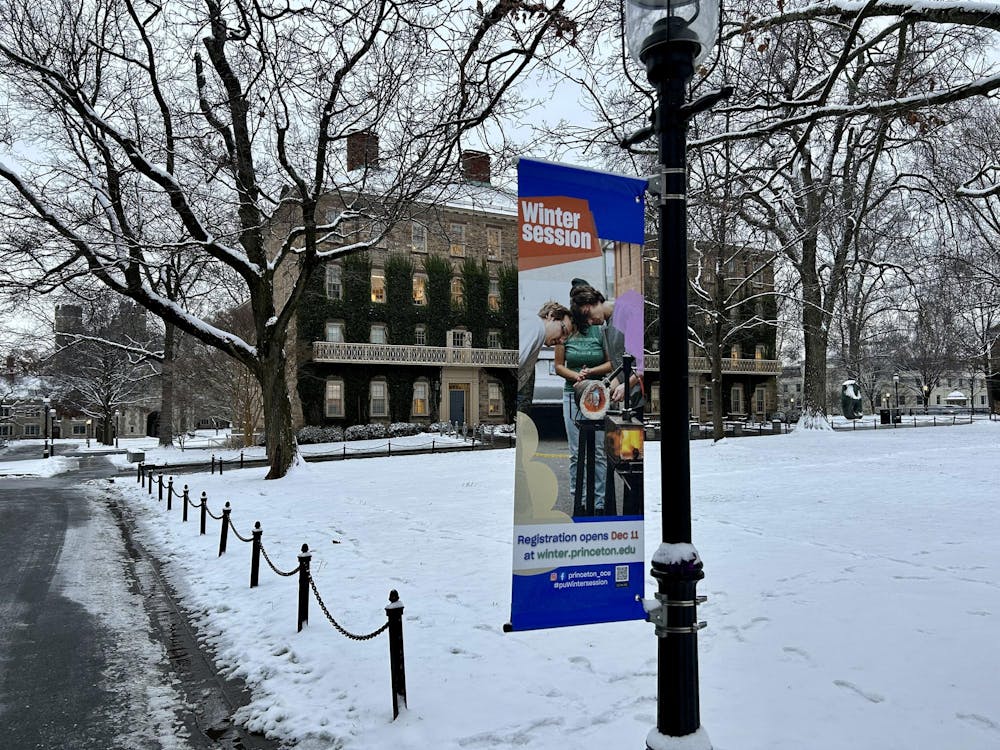Shortly after the election of Donald Trump, the late Toni Morrison, the canonical novelist, Nobel laureate, Pulitzer winner, and the Robert F. Goheen Professor in the Humanities, Emerita, theorized in The New Yorker, “So scary are the consequences of a collapse of white privilege that many Americans have flocked to a political platform that supports and translates violence against the defenseless as strength. These people are not so much angry as terrified, with the kind of terror that makes knees tremble.”
The line is as piercing as it is empathetically conscious of the psychosocial dynamics driving American racial terror. Morrison realized, more than anyone, that racist structural violence, which has dictated much of this country’s dark history, is a product of “cowardice,” not innate sociobiological strength. Morrison recognized white privilege as a sign of existential weakness, a damning reflection of our country’s paranoid reluctance to render fully human individuals whose political empowerment would undercut, not further solidify, the institutionalization of white supremacy.
As Morrison keenly put it in her New Yorker piece, “The sad plight of grown white men, crouching beneath their (better) selves, to slaughter the innocent during traffic stops, to push black women’s faces into the dirt, to handcuff black children. Only the frightened would do that. Right?”
It’s hard reading these sublime, penetrating lines knowing full well their brilliant scribe is no longer with us. In the same way, the loss of Morrison is tragic, in part because we need her perhaps now more than ever.
Given the man who bragged about grabbing women “by the pussy” and entered American politics by questioning the birthplace of his black predecessor is now the most powerful human being in the world; given the ubiquity of white-supremacist terrorism and the systematization of unhinged Trumpian sadism; given the normalization of insidious go-back-to-where-you-came-from rhetoric and the demonization of those who live in the farthest proximity to institutional power; and given our increasing desensitization to the brutalization of toddlers at the Southern border and the broad-based social decay eating away at the elemental fabric of American life, we urgently need the type of political reasoning, emotively nurturing literature, intimate tough love, and incisive moral education that Morrison long spoiled us with.
As burdensome as it is to project singular moral responsibility onto a cultural icon like Morrison, it also seems logical, in this time of chaos and exhaustion, to cling to the words and wisdom of the people who articulate our pain more authentically than we could ever do ourselves.
Sometimes, in fact, I feel it’s only right and intellectually respectful to defer to the instruction and expressed convictions of people like Morrison. As Roxane Gay noted in The New York Times, “For the most vulnerable among us, there is a great deal at stake [in this political moment], and silence in the face of all this injustice is not acceptable. Then I read Toni Morrison and think, ‘Until I can write like that, I should say nothing.’”
Morrison was distinctly aware of the type of “madness” plaguing our national landscape well before the election of Trump and the racialized atrocities that have followed. She knew racism – and misogyny and classism – was woven into American DNA. She knew that our white-supremacist history would be incessantly recycled, because Americans, even if they knew better, just couldn’t free themselves of their self-protective racist fanaticism.
Morrison also knew how to challenge the reflexive violence of white fragility and sociopolitical narcissism. Though her work examined the malignancy of racism, she refused, boldly, to narratively centralize white people and whiteness. Rather than appeal to a white readership interested in positioning themselves in the social worlds of her novels, Morrison looked inward and, despite the commercial risks, prioritized black interior experiences, experiences that were not disentangled from white hegemony but also not consumed by it.
It is now quite the understatement to say that countless black – and nonblack – writers have found inspiration in Morrison. In fact, two days after Morrison’s death, writer and TV-news host Rebecca Carroll stated, in a moving essay in The Atlantic, that she’s writing her memoir, “Surviving the White Gaze,” for Morrison, as the late author compelled her to seek a form of meaning that transcends the literary strictures of white-centric perception.
Given the contagion of her transgressive centralization of black interiority, impacting Caroll and other black intellectuals, Morrison’s ultimate achievement is her subversion of conventional literary sensibilities – the subversion of the idea that black people’s lives are only worthy of documentation and narrativization when their proximity to whiteness is of primary focus.
Of course, Morrison’s deconstruction of the white gaze stretched beyond literature, reinforcing her commitment to dismantling political mechanisms that discursively privileged the powerful and silenced the marginalized: By applying Morrison’s white-gaze dismantlement in a sociopolitical context – by emphasizing the interior experiences, ideas, longings, and needs of those outside the paradigms of systematic power – we can discern, authentically, the suffering of those who have been violently othered by the American system.

As a white male who goes to Princeton, an institution that employed Morrison and housed her papers while harboring a history of white supremacy, I, and many others who look like me, do not live in neighborly proximity to the characters and narratives Morrison brought to life.
Nonetheless, white Americans like me are just as morally and intellectually indebted to Morrison as any other American demographic: She generously supplied this country with an unprecedently intimate body of literature that can educate all Americans – perhaps especially upper-class white Americans – about the brutality and ironic beauty of American life experienced by those denied access to the levers of power and capital.
Undoubtedly, then, Toni Morrison’s absence will be felt in this moment of craven moral complacency, political turmoil, and subjugating authoritarianism. She’s the savior we need the most, and the savior we least deserve.
Samuel Aftel is a senior from East Northport, N.Y. He can be reached at saftel@princeton.edu.








